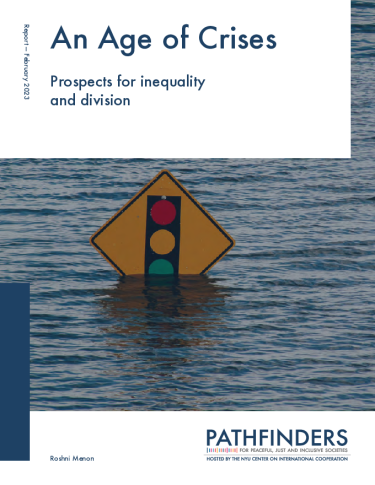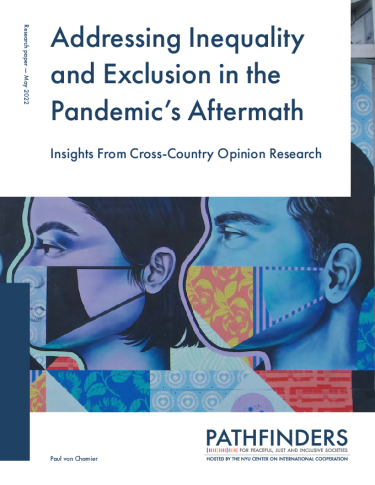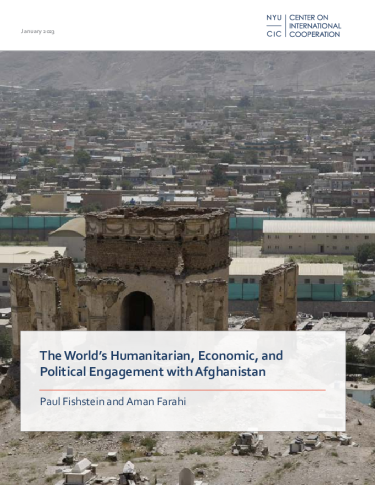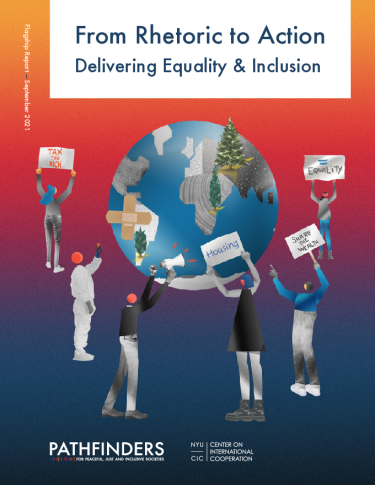Inequalities can shape, drive, and amplify crises and at the same time, be the consequence of crises.
The double shock of the COVID-19 pandemic followed by the Russian invasion of Ukraine has been accompanied by an uptick in income and social inequalities. Moreover, a world enveloped in a series of crises has become the grim backdrop for many of the current discourses on how to solve salient world problems.
The complexity and force of how each individual crisis overlaps and interacts with, and sometimes worsens the impact of other crises—including rising levels of inequality and exclusion—is profound and damaging, requiring careful analysis of both consequences and solutions. For instance, surging inflation rates, which began in 2021, as well as the food and energy crises set off largely by the Russian invasion of Ukraine, have precipitated and worsened the debt crisis in many lower income countries. Combined with the existential threat of climate change and related and prevalent extreme climate events, a perfect and potent storm of events have been set in motion: even if aspects of today’s cost-of-living crisis wane, their ripple effects will continue to reverberate, in some instances setting off political instability and social unrest in parts of the world. The lessons learned from these crises, and their interaction with inequality and exclusion will be critical to better prepare for the future, and to break the deadly spiral of crises and rising inequality. While disasters—both those created by people and generated by nature—have increasingly become a daily reality for many in different parts of the world, policies at the global, regional, and national levels, have yet to catch up with this new reality.
Looking across six areas—food and fuel shortages, inflation, debt distress, extreme climate-related events, and political unrest—there are very few countries that escape the reach of at least one crisis.
However, more alarmingly, many countries are exposed to multiple and compounding levels of economic, social, and environmental shock; which can intersect with underlying inequalities and vulnerabilities such that a vicious cycle of income inequality, increasing social stratification, and discontent spreads across societies and generations. New research from the Pathfinders team shows that in those countries for which complete data exists across six crises (90 in total), eight countries are at risk for being impacted by all crises at the same time. 72 out of these 90 countries (or 80 percent) are at high or moderate risk of suffering from at least three crises at the same time. If we limit the analysis to five crises (food price shock, inflation, extreme climate events, debt distress, and protests), 10 out of the 134 countries with complete data are at high or moderate risk of suffering from all five crises and 86 countries (65 percent) from at least three crises. This number may even be an underestimate as typically lower income countries have less capacity to collect data and tend to deal with multiple crises arising from debt and cost-of-living issues.
In response to these multiple crises (or polycrisis), urgent, integrated, and coordinated policy interventions are needed, including even greater cooperation and commitment at the global level. Without a sharp change of course, a renewed recommitment to multilateralism and bolder action to address root causes, there will be little change for the better. There is an opportunity for committed countries to advocate for sustained and urgent action to respond to the immediate humanitarian needs of a great majority of the world’s population. Policy solutions can be geared towards the shorter and longer terms: The first includes an urgent set of instruments aimed at reducing suffering as soon as possible and a second set focused on achieving longer-term structural transformation to reduce vulnerability and promote sustainability.



